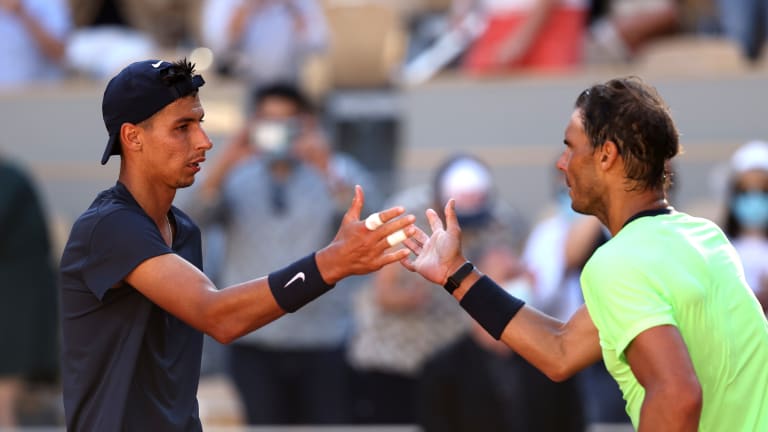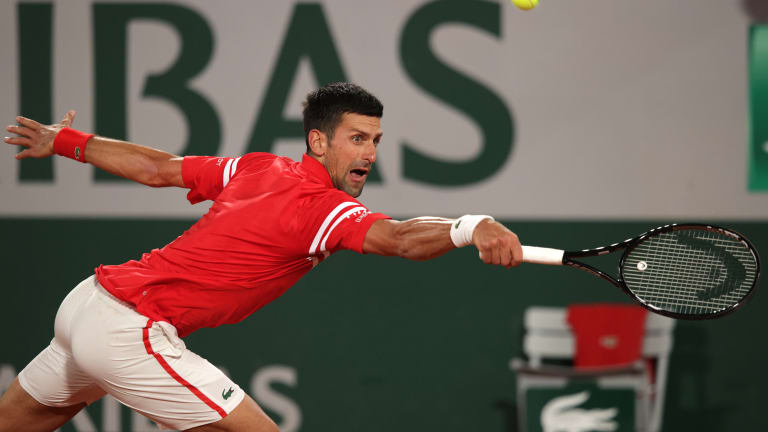Roland Garros
Rafael Nadal and Novak Djokovic waste no time in first-round victories
By Jun 01, 2021Roland Garros
Rafael Nadal withdraws from French Open with hip injury; 2024 likely to be last year on tour
By May 18, 2023Roland Garros
French Open organizers give wild cards to veterans Paire and Mladenovic
By May 15, 2023Roland Garros
Novak Djokovic: 19 stats for his 19th Grand Slam title
By Jun 14, 2021Roland Garros
Five Things To Know About Barbora Krejcikova’s Win At Roland Garros
By Jun 14, 2021Roland Garros
Ranking Reaction: Tsitsipas hits new high of No. 4, Krejcikova surges into Top 20
By Jun 14, 2021Roland Garros
How do Novak Djokovic, Rafael Nadal and Roger Federer stack up, post-Paris?
By Jun 14, 2021Roland Garros
The Rally: Is Novak Djokovic's Roland Garros triumph the most remarkable of his 19 Slam-title runs?
By Jun 13, 2021Roland Garros
Dani's Take: Krejcikova's triumph, Djokovic's usurpation, and taking stock of the final 72 hours in Paris
By Jun 12, 2021Roland Garros
The Rally: At a French Open where new faces confronted big moments, Barbora Krejcikova completes a breakout singles run
By Jun 12, 2021Rafael Nadal and Novak Djokovic waste no time in first-round victories
Champions like to say how they play themselves into form. But as Nadal and Djokovic proved today, they arrive with plenty of it too.
Published Jun 01, 2021
Advertising
Advertising

Down two sets, Popyrin had a 5-2 lead in the third, but Rafa roared back to win his 26th consecutive set at Roland Garros.
© Getty Images
Advertising
Advertising

Djokovic's night-match debut at Roland Garros went as straightforward as expected.
© Getty Images